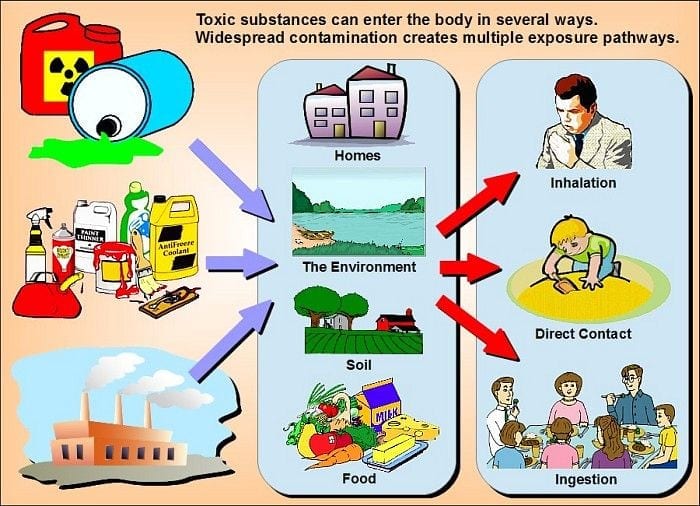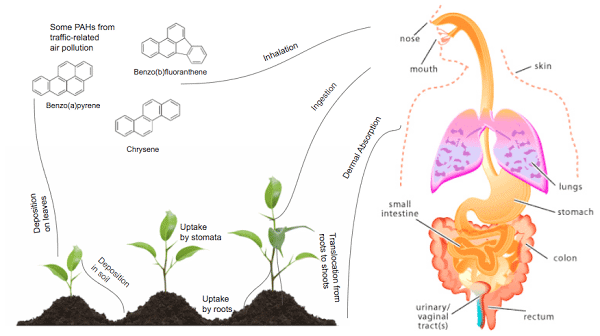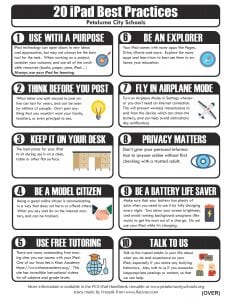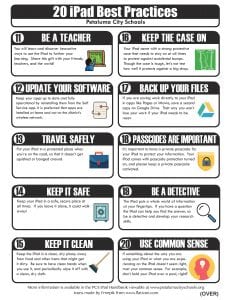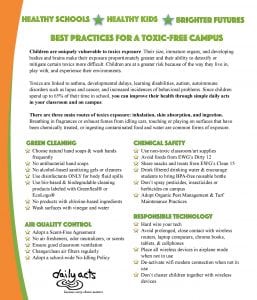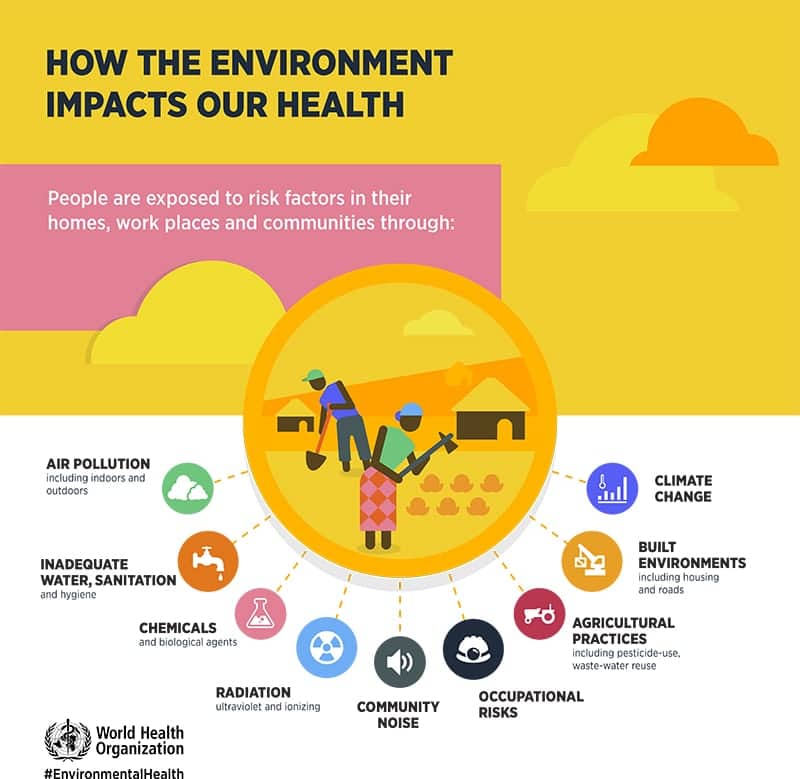Daily Acts is a dedicated steward of Sonoma County’s environmental health.
We are thrilled to be rolling out a new pilot in partnership with the Jonas Family Fund focused on children and environmental health. We are exploring the interrelationships between children’s health and the environments in which they live, learn, and play. With a focus on education, outreach, and community engagement, we are developing offerings that support children’s (and all of our) health and well-being.
The primary goals of our environmental health programs are to foster healthier, more resilient, and safer communities.
Our programs support healthy, sustainable school environments by:
Educating families, educators, school board members, administrators, and health advocates on evidence-based best practices for toxics reduction and/or elimination in community areas
- Identifying and evaluating common toxics
- Understanding health impacts of toxics exposure
- Educating on exposures reduction and supporting resilient health
- Supporting schools and organizations in adopting and implementing Least Toxic Practices
- Instituting sustainable landscaping practices on school campuses that increase opportunities to conserve water, grow food, reduce waste, and build community
- Cultivating community stewardship of our environmental health
Advocating for policies that protect children’s health
- Pesticide-free schools and public parks
- No idling at schools, sporting events
- Waste Reduction
- Limited WiFi Exposure
Additionally, we are focusing on collaborating with other leaders in the field to recommend and apply protective interventions that reduce hazards in community areas, providing environmental health education and outreach events and materials to the community, particularly vulnerable communities, engaging community members, policy makers, and philanthropists in stewardship of our collective environmental health.
|
||||||||||||||||||||||||||||||||||||||||||||
|---|---|---|---|---|---|---|---|---|---|---|---|---|---|---|---|---|---|---|---|---|---|---|---|---|---|---|---|---|---|---|---|---|---|---|---|---|---|---|---|---|---|---|---|---|
HEALTHY SCHOOLS + HEALTHY KIDS + BRIGHTER FUTURE
BEST PRACTICES FOR A TOXIC-FREE CAMPUS
Children are uniquely vulnerable to toxics exposure. Their size, immature organs, and developing bodies and brains make their exposure proportionately greater and their ability to detoxify or mitigate certain toxics more difficult. Children are at a greater risk because of the way they live in, play with, and experience their environments.
Toxics are linked to asthma, developmental delays, learning disabilities, autism, autoimmune disorders such as lupus and cancer, and increased incidences of behavioral problems. Since children spend up to 65% of their time in school, you can improve their health through simple daily acts in your classroom and on campus.
There are three main routes of toxics exposure: inhalation, skin absorption, and ingestion. Breathing in fragrances or exhaust fumes from idling cars, touching or playing on surfaces that have been chemically treated, or ingesting contaminated food and water are common forms of exposure.
GREEN CLEANING
- Choose natural hand soaps & wash hands frequently
- No antibacterial hand soaps
- No alcohol-based sanitizing gels or cleaners
- Use disinfectants ONLY for body fluid spills
- Use bio-based & biodegradable cleaning products labeled with GreenSeal® or EcoLogo®
- No products with chlorine-based ingredients
- Wash surfaces with vinegar and water
AIR QUALITY CONTROL
- Adopt a Fragrance-Free Agreement
- No air fresheners, odor neutralizers, or scents
- Ensure good classroom ventilation
- Change/clean air filters regularly
- Adopt a school-wide No-Idling Policy
CHEMICAL SAFETY
- Use non-toxic classroom/art supplies
- Avoid foods from Environmental Working Group’s Dirty 12
- Share snacks and treats from Environmental Working Group’s Clean 15
- Drink filtered water & encourage students to bring BPA-free reusable bottle
- Don’t spray pesticides, insecticiedes, or herbicides on campus
- Adopt Organic Pest Management & Turf Maintenance Practices
RESPONSIBLE TECHNOLOGY
- Hard wire your tech
- Avoid prolonged, close contact with wireless routers, laptop computers, chrome books, tablets & cellphones
- Place all wireless devices in airplane mode when not in use
- De-activite wifi modem connection when not in use
- Don’t cluster children together with wireless devices



